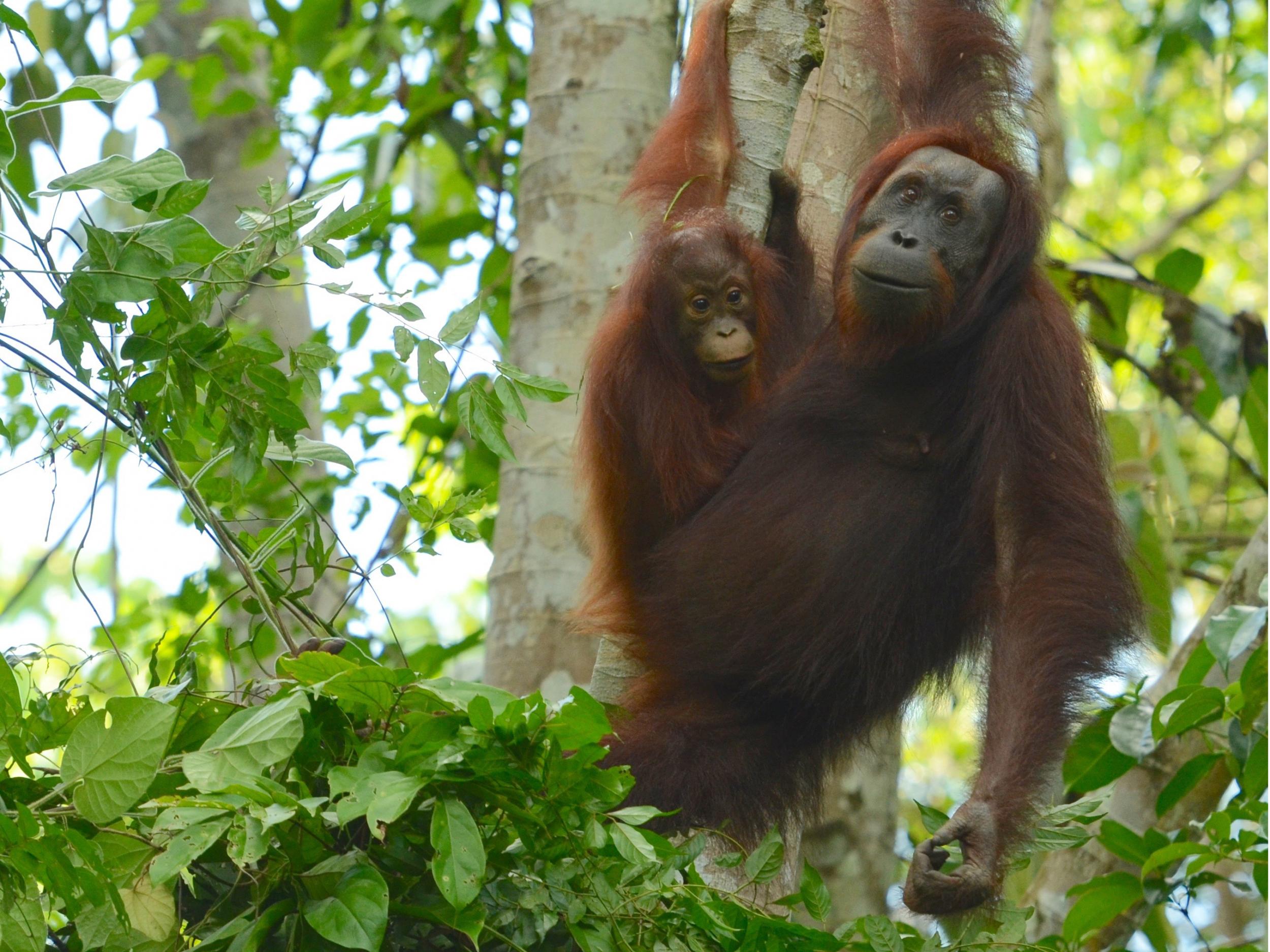Orangutans declining despite ‘impossible’ Indonesian government report claiming they are on the rise, scientists say
Conclusion that population of great apes leapt by 10 per cent in two years branded 'scientifically unjustified'

Claims by the Indonesian government that populations of critically endangered orangutans are recovering have been dismissed by scientists as “impossible”.
A recent report from the nation’s environment ministry concluded orangutan populations in Indonesia had increased by more than 10 per cent in just two years.
However, international scientists have concluded these figures are not accurate, and the great apes continue to be threatened by deforestation and hunting.
Dr Erik Meijaard, from the International Union for Conservation of Nature, said all three species of orangutan are “on a steep decline”.
“Their numbers are not increasing as indicated by the Indonesian government report," he said.
One recent study concluded that the island of Borneo lost more than 100,000 individuals between 1999 and 2015. Another found the population had dropped by a quarter in a decade.

Surveys have found that vast swathes of the apes’ habitat has been destroyed to make way for palm oil plantations, a change that is bound to affect their numbers.
Dr Meijaard and colleagues applauded the Indonesian authorities for transparently documenting the impact of forest management on wildlife, but questioned the methods used.
Not only did the 10 per cent rise far exceed the government’s own target of a 2 per cent population increase, it was also reported for 19 other priority species for conservation, including Sumatran rhinoceros.
The scientists said such positive progress was simply not feasible given known breeding rates and threat levels.
To track orangutan numbers, the government used information from nine monitoring sites, in which the 2015 population was recorded as 1,153 orangutans. They then estimated the population doubled to 2,451 individuals by 2016.
Using this figure, officials then extrapolated a 10 per cent figure for all orangutans across Indonesia.
But the scientists stated it is “biologically impossible for an orangutan population to double its size in a year”.
They attribute some of the recorded rises to orangutans being moved between national parks, an act which would clearly mean loss in one area at the same time as gain in another.
Finally, they noted the government-sampled area covered less than 5 per cent of the Bornean and Sumatran orangutan ranges, and none of the Tapanuli orangutan habitat, making the government’s conclusions “scientifically unjustified”.
The report, which was supported by the UN’s Food and Agricultural Organization and Norway’s International Climate and Forest Initiative, will now inform the development of a 10-year action plan for orangutan conservation.

Dr Meijaard added: “If the government thinks that orangutan populations are increasing, it calls for completely different strategies compared to those required for dealing with rapidly decreasing populations.
“It is important that the government realises that populations remain in decline. Therefore, a new approach to orangutan conservation is needed.”
The scientists pointed to the Indonesian government’s recent successes in implementing policies to reduce fires and restore peatlands, and said they must step up to meet the challenge of orangutan conservation in a similar way.
Their analysis was supported by the US Fish and Wildlife Service, and published in the scientific journal Current Biology.
The Independent has contacted the Indonesian Ministry of Environment and Forestry for comment.
Join our commenting forum
Join thought-provoking conversations, follow other Independent readers and see their replies
Comments
Bookmark popover
Removed from bookmarks